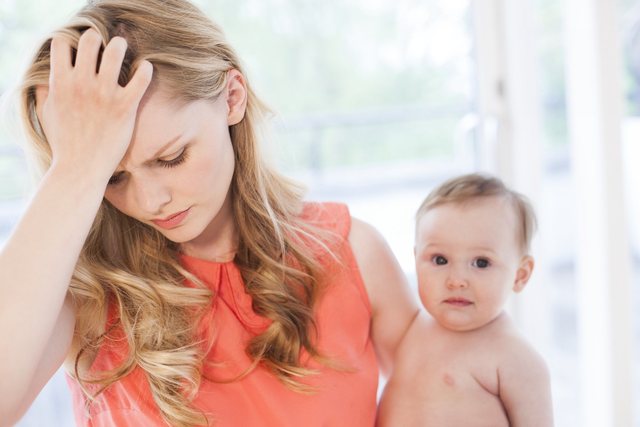
The birth of a baby can trigger a variety of powerful emotions, from happiness to fear and anxiety. But it can also lead to something unexpected, depression.
Most new mothers experience some melancholy after childbirth, which usually includes mood swings, anxiety, and sleep problems. It can start in the first 2-3 days after birth and last up to two weeks. But some young mothers experience a more severe and prolonged form of depression known as postpartum depression. In rarer cases, a more extreme mood disorder called postpartum psychosis may develop after birth.

Postpartum depression is not a problem with character or weakness, it is just a postnatal complication. If you have postpartum depression, immediate treatment can help manage your symptoms. Leaving untreated postpartum depression can disrupt the bond between mother and child and cause family problems.
Signs and symptoms of postpartum depression are varied and can range from mild to serious.
symptoms:
Humor fluctuations
Anxiety and panic attacks
Sadness
The hopeless ones
Irritation and anger
Crying
Lack of concentration and comfort
Appetite problems (loss of appetite or eating more than usual)
Sleep problems (sleeping more or less)
Difficulties in making a connection with the newborn
Leaving friends and family
Fatigue and lack of energy
Loss of interest in activity that they liked before birth
Fear of not being a good mom
Feeling worthless, ashamed, at fault and incapable
Inability to think clearly and make decisions
Thoughts on hurting yourself or your baby
Risk factors
Every young mother can experience postpartum depression, which can develop even after the birth of other children, not just the first. But it is more likely to happen if:
Have a history of depression, during pregnancy or other times
You have bipolar disorder
You had postpartum depression after a previous pregnancy
you have family members who have had depression or other mood disorders
You have experienced stressful events, such as complications during pregnancy, illness or loss of employment
Your child has health problems or disabilities
You have given birth to twins or more children
Have difficulty breastfeeding
You have a problem with your partner
You have financial problems
You have no people to rely on
The pregnancy was unplanned or unintended
If you have a history of depression, especially postpartum depression, tell your doctor if you are planning to become pregnant or once you find out you are pregnant.
During pregnancy, your doctor may monitor you closely for signs and symptoms of depression. Sometimes mild depression can be managed with support groups or other therapies. In other cases, anti-depressants may be recommended, even during pregnancy.
After the baby is born, your doctor may recommend a postpartum checkup to identify signs and symptoms of postpartum depression. The earlier it is identified, the earlier treatment can be initiated.
Source: Health Journal





